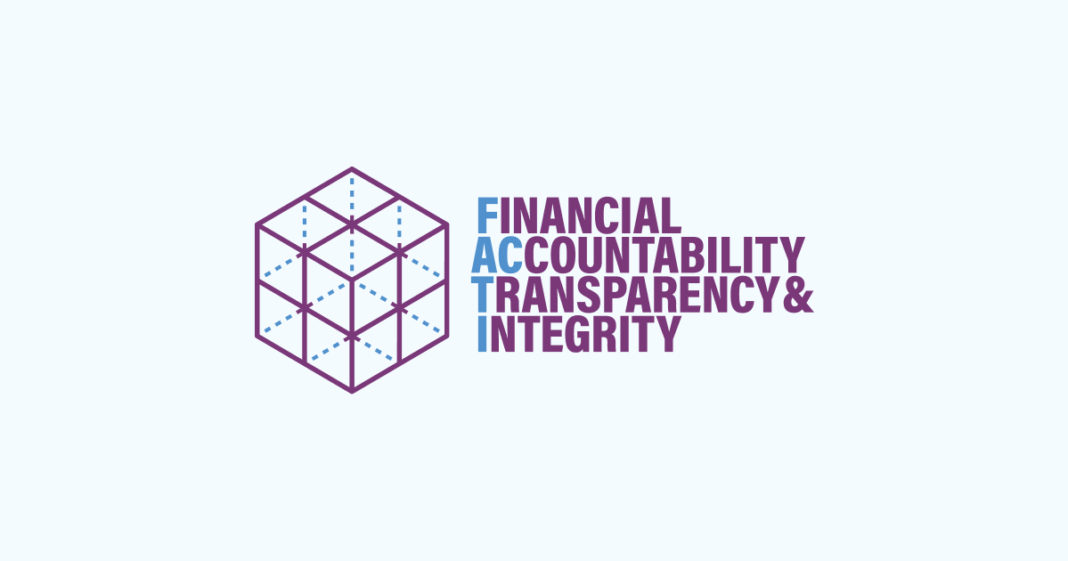By Alex Ekemenah
The High-Level Panel on International Financial Accountability, Transparency and Integrity for Achieving the 2030 Agenda (FACTI Panel) has released its report on Financial Integrity for Sustainable Development.
The High-Level Panel was convened by the 74th President of United Nations General Assembly and the 75th President of the Economic and Social Council on 2 March 2020.
The 2030 Agenda for Sustainable Development envisioned extensive global transformation to end poverty and shift the world onto a sustainable and resilient path. The Addis Ababa Action Agenda on Financing for Development provided the framework for aligning all financing for the implementation of the Sustainable Development Goals (SDGs) and targets.
The report notes that six years after these agreements in 2015, “the world has fallen short in achieving transformative change. The COVID-19 pandemic has introduced a series of formidable stumbling blocks on top of pre-existing systemic challenges.
“It has compounded the inability of all States to generate domestic resources for vital investments for sustainable development. The impacts are also deeply gendered, with grave implications for advancing progress towards gender equality and the empowerment of all women and girls.
The report further notes that even before the present crisis, “the international financial system was not conducive to directing investment of resources into sustainable development. Illicit financial flows (IFFs) — from tax abuse, cross-border corruption, and transnational financial crime — drain resources from sustainable development. They worsen inequalities, fuel instability, undermine governance, and damage public trust.”
The report notes that ultimately, “they contribute to States not being able to fulfil their human rights obligations.”
The objective of the FACTI Panel is to contribute to the overall efforts undertaken by Member States to implement the ambitious and transformational vision of the 2030 Agenda for Sustainable Development. “It is mandated to review current challenges and trends related to financial accountability, transparency and integrity, and to make evidence-based recommendations to close remaining gaps in the international system.”
The Panel is co-chaired by H.E. Ibrahim Assane Mayaki, former Prime Minister of Niger Republic, and H.E. Dalia Grybauskaitė, former President of Lithuania.
Other members include Annet Wanyana Oguttu, Benedicte Schilbred Fasmer, Bolaji Owasanoye, Heidemarie Wieczorek-Zeul, Irene Ovonji-Odida, José Antonio Ocampo, Karim Daher, Magdalena Sepúlveda, Manorma Soeknandan, Shahid Hafiz Kardar, Susan Rose-Ackerman, Tarisa Watanagase, Thomas Stelzer, Yu Yongding and Yury Fedotov.
The High-Level Panel on Financial Accountability, Transparency and Integrity for Achieving the 2030 Agenda came together as a diverse group of individuals from different backgrounds, experiences and national and regional contexts.
The report notes that global finance is currently skewed, as gaps, loopholes and shortcomings in rules, and their implementation, allow tax abuses, corruption, and money laundering to flourish, according to the report.
“These illicit financial flows represent a double theft: an expropriation of funds that also robs billions of a better future”, the report notes.
This situation undermines trust in public ethics, drains resources, pushes people into poverty and hamstrings efforts to tackle global challenges, including COVID-19 and the climate crisis.
It is to address this situation, which prevailed long before the COVID-19 pandemic and economic crisis, that the 74th President of the United Nations General Assembly and the 75th President of the United Nations Economic and Social Council jointly appointed us to chair the HighLevel Panel on International Financial Accountability, Transparency and Integrity for Achieving the 2030 Agenda (FACTI Panel).
As the pandemic continues, wreaking havoc on our health and economies, and exacerbating inequality, we see ever more clearly the need for greater public resources to invest in recovery.
The report says the Panel realise the urgent need to restore trust in national and international governance. By strengthening integrity within global finance, the FACTI Panel believes that all countries can better deliver peace and prosperity for people and the planet now and into the future.
“Strengthening coordination and global governance related to financial integrity is an essential component of the common agenda for the common future of present and coming generations”, the report notes.
Building on decades of work, the Panel says it has developed a blueprint to free the global economy from illicit financial practices and ultimately enable sustainable development for all, everywhere.
“Our approach is driven by a unified aim: to foster a system of “financial integrity for sustainable development”, the report states.
The FACTI Panel has conceived of the phrase “financial integrity for sustainable development” as an aspirational call-to-arms, to describe the world we want. Creating financial integrity for sustainable development, and using the resources generated to finance the Sustainable Development Goals, will constitute a double win. Resources, instead of vanishing into an offshore maze, will be used to benefit the people and places from which they were generated. Trust will regrow as States are better able to fulfil their human rights obligations.
“Achieving these ambitious aims requires a set of values, policies, and institutions. Together they create a financial integrity for sustainable development ecosystem.
The FACTI Panel developed 14 recommendations to chart out the way which represent an ambitious set of measures to reform, redesign and revitalise the global architecture, so it can effectively foster financial integrity for sustainable development.”
But the report also notes that recommendations are not enough.
The Panel, therefore, calls on all people to contribute through their actions. “This is not a job for each government acting on its own. Political leadership is needed, both at the national and international levels. Governments must come together to agree on new solutions for financial integrity.
“The private sector must meet higher standards. Civil society and the media have to help hold the powerful accountable. We remain confident that by working diligently and in concert, Member States can succeed in building peaceful and inclusive societies, with access to justice for all, and accountable and inclusive institutions at all levels.


